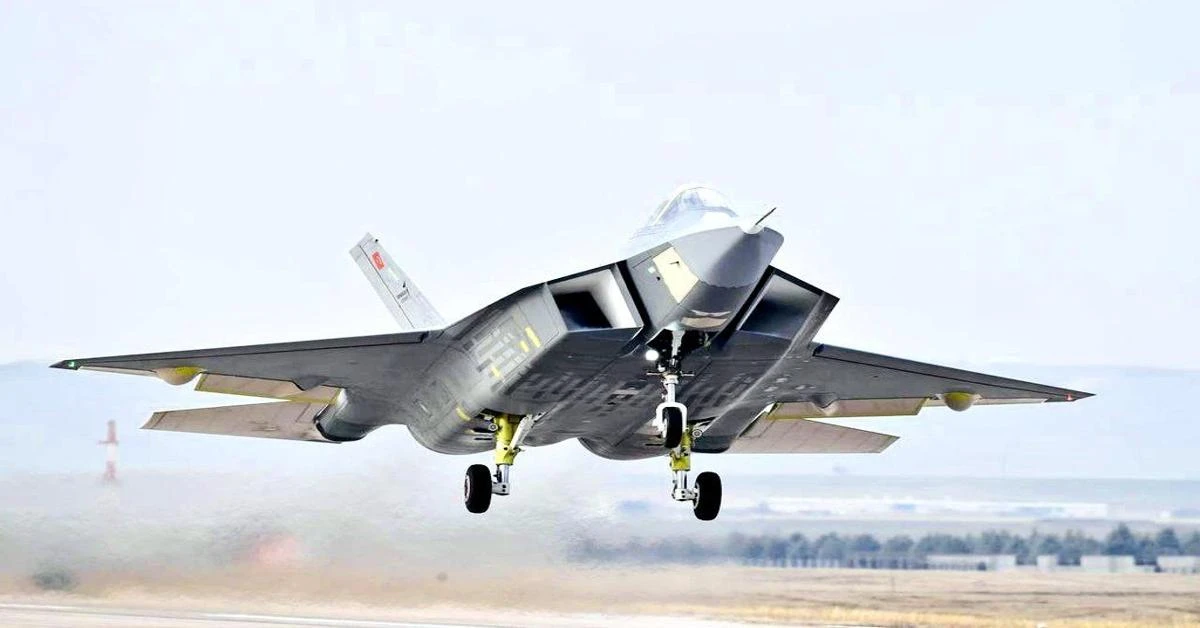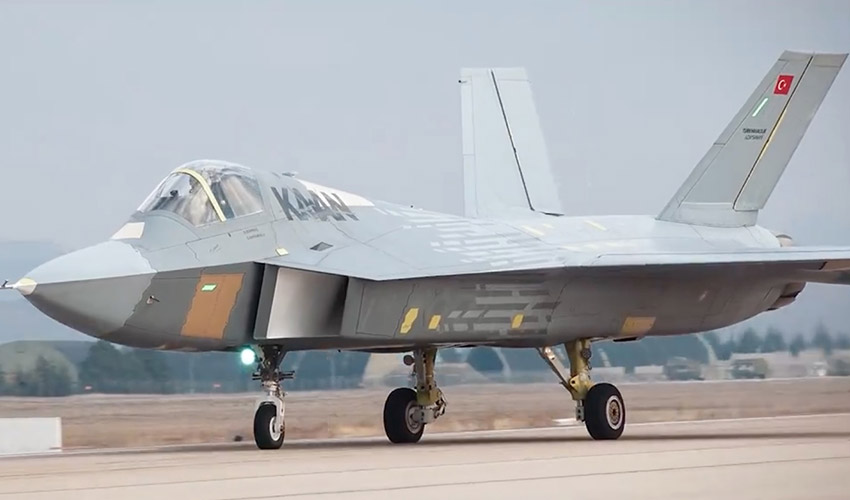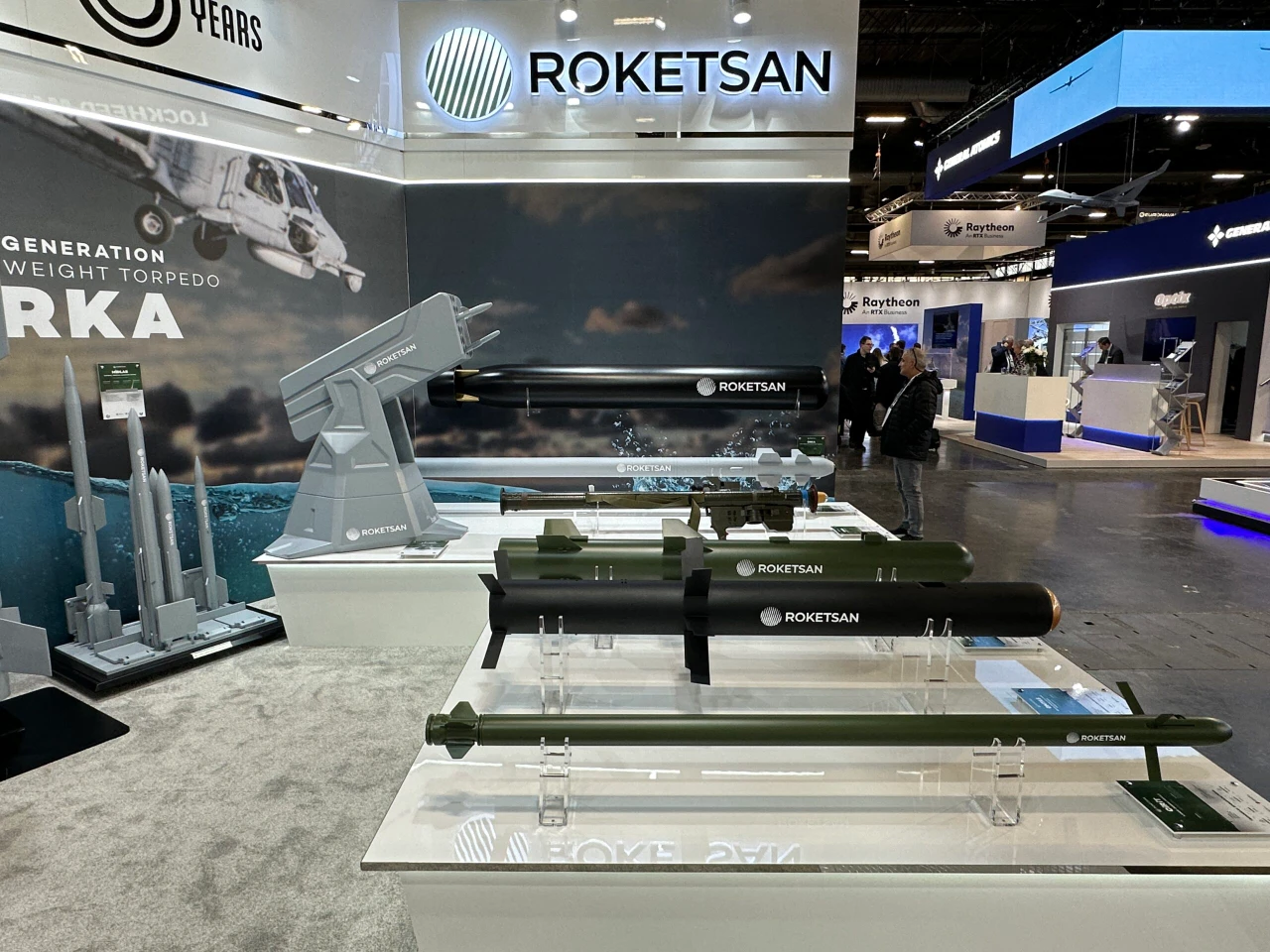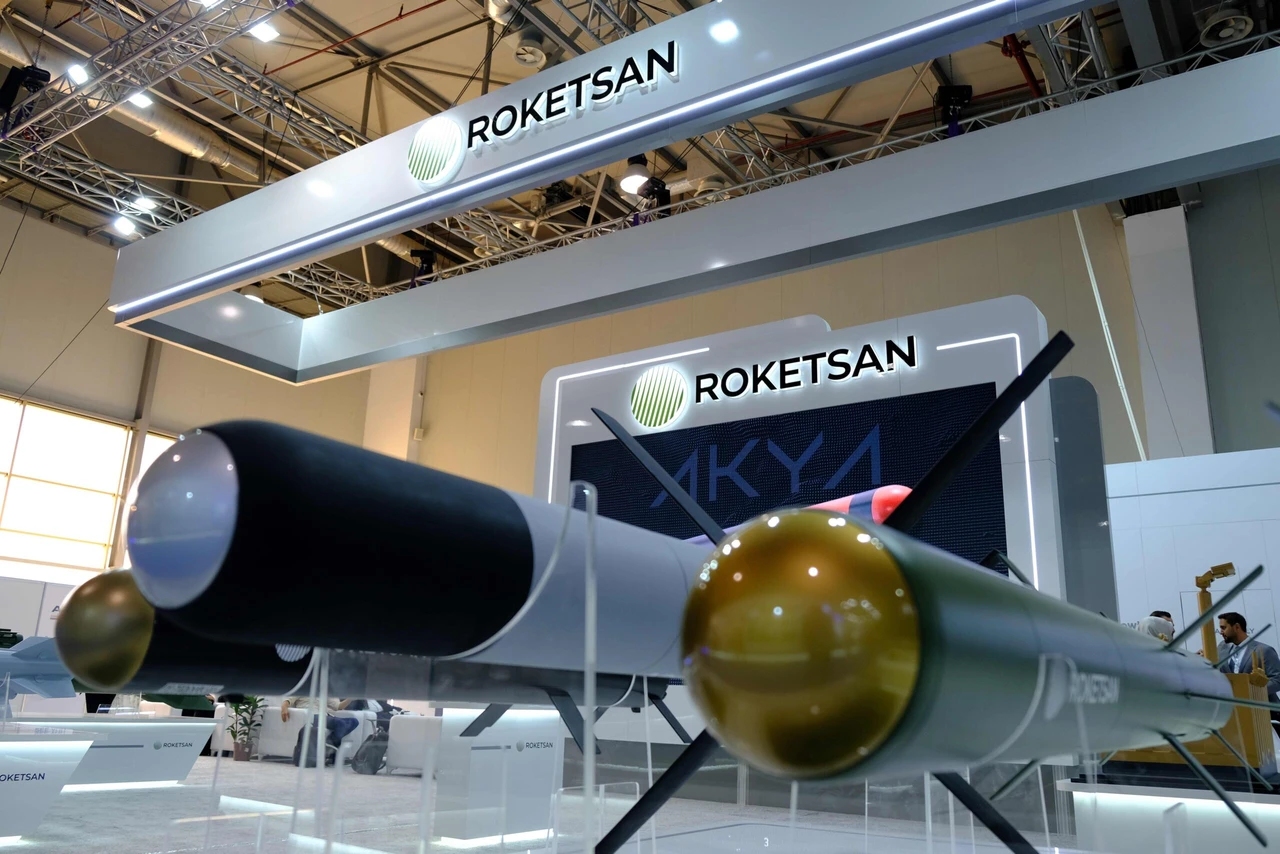Greek expert discusses KAAN’s significance in Türkiye’s defense autonomy

Greek defense expert Dr. Vassilis Nedos provides insights about Türkiye’s fifth-generation fighter jet KAAN, discussing its strategic significance, implications for Greece and regional power dynamics
Exclusive by Selin Hacialioglu — Türkiye’s fifth-generation fighter jet project, KAAN, represents a major milestone in the country’s defense industry.
Developed by Turkish Aerospace Industries (TAI), KAAN aims to position Türkiye among the select group of nations capable of producing advanced fifth-generation fighter jets. The project is considered a pivotal step toward achieving greater self-reliance in defense technologies, especially after Türkiye’s removal from the F-35 program.
Vassilis Nedos is a diplomatic and defense correspondent for the Greek newspaper Kathimerini and holds a doctorate in European History. His comprehensive knowledge of Greek-Turkish relations, alongside his expertise in NATO and EU diplomatic strategies, provides him with a unique perspective on regional defense matters. His insights offer valuable context on the implications of Türkiye’s defense advancements.
Türkiye’s air superiority cannot be determined yet
In an interview with Türkiye Today, Nedos was asked whether KAAN provides Türkiye with air superiority over Greece. He stated, “Currently, KAAN is a prototype that has not been tested and for which we do not have sufficient data.”
This indicates that more time and testing are needed to fully evaluate KAAN’s potential. The aircraft’s initial performance metrics, such as its 13-minute flight at 8,000 feet and 230 knots, are promising but not enough to assert dominance in aerial combat capabilities yet.
Greece’s reaction to KAAN’s maiden flight
Regarding Greece’s reaction to Türkiye’s production of a fifth-generation fighter jet, Nedos said, “The current reactions are purely informational and commentary in nature.”
This suggests that KAAN is not yet a major concern in Greece but is being closely monitored. Greek defense analysts are keenly observing the progress of KAAN, understanding that its successful deployment could impact the balance of power in the Aegean region.
TAI’s collaboration with BAE systems
Sharing thoughts on KAAN’s first flight and Türkiye’s process of producing a fifth-generation fighter jet, Nedos noted, “The efforts of the Turkish Defense Industry are very interesting.”
He elaborated by saying, “The joint venture between Turkish Aerospace Industries and British Aerospace (BAE Systems, which provides critical technical knowledge to Türkiye) for the KAAN project is an attempt which will determine whether the Turkish Defense Industry can take the next step and produce fifth-generation fighter jets.”
Too early to compare KAAN with F-35
When asked how Greece’s acquisition of F-35 fighter jets compares with Türkiye’s production of KAAN and its impact on Greece’s defense strategy, Nedos responded, “The F-35 is an aircraft that has been exported to many countries and has performance data available. KAAN is still in the testing phase.”
“Once KAAN is adequately tested, we can make comparisons with the F-35,” he stated.
KAAN brings Türkiye closer to defense independence
Discussing the extent to which the success of the KAAN program can contribute to Türkiye’s goals of achieving independence in its defense industry and how this is perceived in Greece, Nedos remarked, “In general, the development of the Turkish Defense Industry is a topic of discussion in Greece, particularly regarding the capabilities developed in the field of Unmanned Aerial Vehicles (UAV) and Surface Vehicles (USV).”
“Since Türkiye already exports UAVs, there is a measurable point of reference. As for KAAN, I reiterate that we need to see how the overall project progresses. Beyond that, Türkiye’s efforts to expand its defense industry capabilities are evident,” he added.
This statement reflects KAAN’s role as an important step in Türkiye’s journey toward defense industry independence. Türkiye’s ambition to reduce reliance on foreign military technology is clear, and KAAN is a pivotal project in this strategy.
Details about KAAN

KAAN represents Türkiye’s ambition to join the ranks of nations capable of producing fifth-generation fighter jets.
The aircraft’s first flight took place in February 2024. During this flight, KAAN remained airborne for 13 minutes, reaching an altitude of 8,000 feet and a speed of 230 knots.
KAAN is designed to meet the needs of both air-to-air and air-to-ground combat. It features advanced avionics, high situational awareness, and low observability with infrared suppression. The design includes capabilities for supercruise (sustained supersonic flight without afterburners) and internal weapon bays, enhancing its stealth characteristics. KAAN boasts a wingspan of 14 meters, a length of 21 meters, and a height of 6 meters. Its maximum speed is 1.8 Mach at 40,000 feet.
The aircraft is equipped with next-generation mission systems, sensor and data fusion supported fire control systems, and the ability to operate in conjunction with other assets such as UAVs and F-16s. Other key features include high situational awareness, optimized pilot workload, and combat damage assessment capabilities. The cockpit design is refined to minimize pilot workload, incorporating advanced systems to support mission effectiveness.
The KAAN project began in 2016 under the name TF-X, with significant contributions from BAE Systems providing crucial technological expertise. The program aims to replace the aging F-16 fleet in the Turkish Air Force by the 2030s.
KAAN’s significance for Türkiye
Despite setbacks, such as Türkiye’s removal from the F-35 program, the development of KAAN signals a strategic shift toward greater self-reliance in defense technologies. The collaboration with BAE Systems is particularly noteworthy, as it brings advanced technological insights and engineering support to the project.
KAAN is expected to include Turkish-made AESA radar, electronic warfare systems, and advanced communication systems, further enhancing its combat capabilities. The development of indigenous engines for KAAN is also underway, although initial flights are powered by General Electric F110 engines, similar to those used in F-16s.
The integration of these systems aims to ensure that KAAN meets the stringent requirements of a fifth-generation fighter jet, positioning Türkiye as a key player in advanced military aviation.



